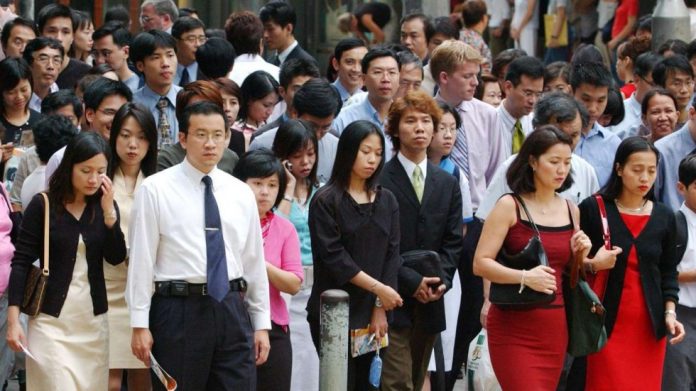Twice as many Hong Kong employers have laid off staff compared with their Singaporean counterparts to cut costs during the Covid-19 pandemic, according to surveys conducted by Comptify Analytics. The results of the survey of 86 companies in Singapore, released last week, showed that just 8 per cent had resorted to terminating staff to protect their bottom line since the coronavirus outbreak. In Hong Kong, however, 16 per cent of the 140 companies surveyed late last month had made staff redundant.
Similarly, 8 per cent of Singaporean firms had furloughed staff or placed them on compulsory unpaid leave, compared to 17 per cent of companies in Hong Kong. “Singapore is tending to apply less ‘destructive measures’ including furlough and redundancy to employment when it comes to cost saving at this stage,” said Vincent Fung, managing consultant for Comptify Analytics. This suggests “cautious optimism of an economic rebound for the Singapore market.”
in addition, some industries in Hong Kong, for example tourism and luxury retail, may be expecting a longer-term downturn or even secular decline, due to the pandemic as well as the prolonged social unrest, Fung added. “Therefore, some companies have started to reshape their business operations to embrace the change.”
Up to 78,500 jobs had been lost by the end of April in Hong Kong since the pandemic started in January, extending the unemployment queue to 202,500 people, compared with 54,000 jobs lost during Sars in 2003. To alleviate the pain, the government will introduce an unprecedented HK$81 billion wage subsidy scheme to pay up to HK$9,000 of the monthly salary of each employee for six months. Companies can start to apply on May 25.
“This should keep unemployment levels stable,” said Darryl Parrant, a country business leader at human resources consultancy Mercer. “We are aware that around half of our clients are taking this wage subsidy grant, while about 25 per cent remain undecided.” Still, Parrant believes unemployment is likely to continue to rise in Hong Kong and the Asia-Pacific as a whole, after a recent survey by Mercer showed three quarters of companies in the region are looking to freeze headcounts, while 29 per cent are reducing executive pay. “Contingent workers are likely to increase in Hong Kong as some employees are forced into redundancy or are placed on furlough,” he said.
Employers in Hong Kong could not be blamed for taking more cost-cutting measures than those in Singapore, as businesses in the semi-autonomous city have been facing more financial pressure and over a longer time frame, said Alexa Chow Yee-ping, managing director of AMAC Human Resources Consultants. “Businesses in Hong Kong have been under pressure for more than two years. Employers in Hong Kong have been impacted by the US-China trade war, then the social unrest and now the coronavirus outbreak. Against this backdrop you cannot say employers are more harsh than those in Singapore for taking more cost-cutting measures,” said Chow.
Both cities were in cost-cutting mode as the coronavirus wreaked havoc on the global economy. Some 85 per cent of the companies surveyed in Hong Kong had implemented measures that affected the workforce, along with 79 per cent of employers in Singapore, according to Comptify. About a fifth of executives in Singapore had taken pay cuts, compared to 15 per cent in Hong Kong, according to the surveys.
On the other hand, only 1 per cent of non-executives have taken a salary hit in Singapore, compared with 9 per cent in Hong Kong. This could reflect the fact Singapore has better protection for lower-level employees in this regard, said Fung. However, this did not mean that talent in Hong Kong would be attracted to Singapore while the pandemic continued, said Chow. “Even if talent [in Hong Kong] really thought that Singapore was a better fit for them as there was more job security, they would wait until after the pandemic ends before making the move. The handling of the coronavirus situation and personal safety takes a higher priority at this moment. “For the time being, Hong Kong has better control over the coronavirus situation and has less confirmed cases compared to Singapore. Taking into account the situation of the coronavirus in both places, people wouldn’t want to go to Singapore now.”





















